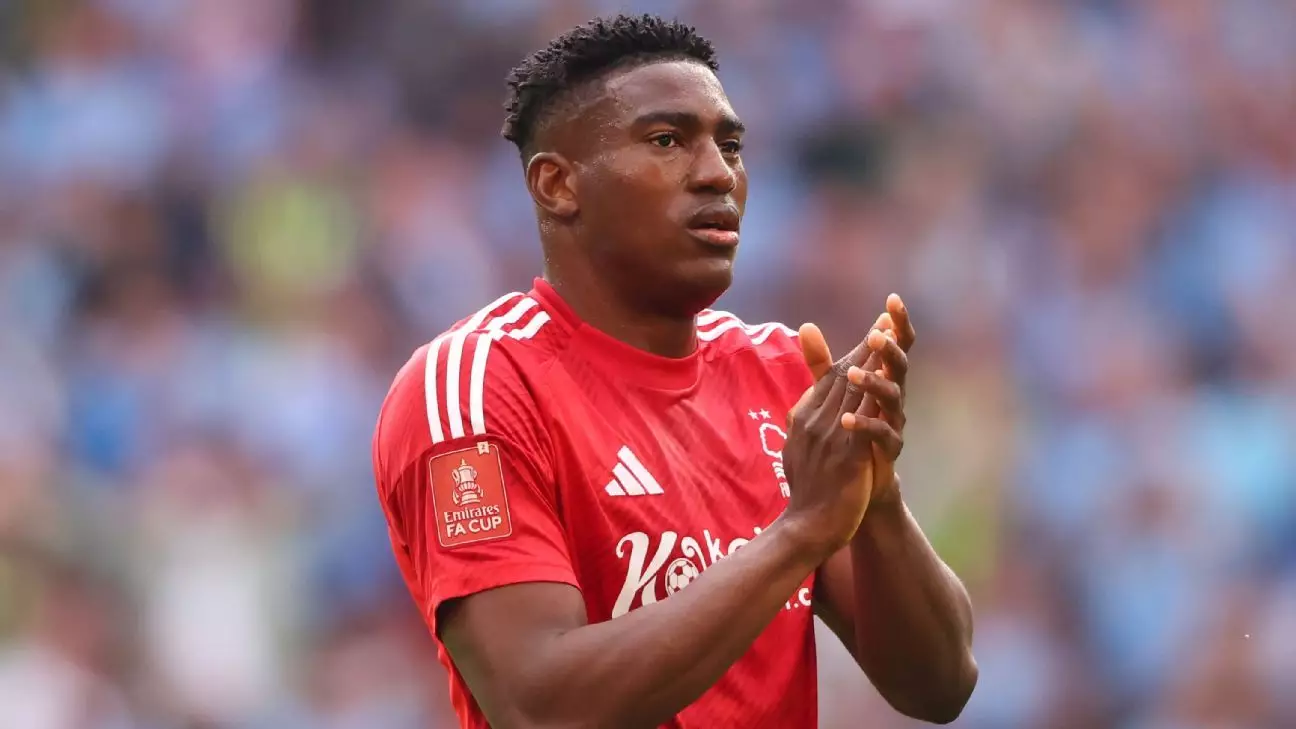On a seemingly ordinary Sunday afternoon, Nottingham Forest’s Taiwo Awoniyi was thrust into a medical emergency that rapidly escalated from a routine match to a serious health crisis. Engaged in a tense 2-2 draw against Leicester City, the Nigerian striker became embroiled in a disturbing incident when he collided with the goal frame shortly after being substituted into the game. The shockwaves from that moment can still be felt in the world of football as this situation unfolds, reminding everyone involved—the fans, the management, and the player himself—of the fragility of an athlete’s health.
With reports emerging that Awoniyi has been placed in an induced coma following urgent surgical intervention, emotions are running high. The duality of hope and fear now looms over Nottingham Forest as the club and its fervent supporters cling to the hopes of his recovery while anxiously awaiting updates on his condition.
Controversy on the Pitch
What makes this incident even more gripping is the discord surrounding it. During the match, there were heated discussions between Forest’s manager, Nuno Espirito Santo, and club owner Evangelos Marinakis. The post-match remarks indicated that frustration had been born from miscommunication around the medical emergency. It speaks volumes about the intricate relationships in professional football—how a split-second decision can not only impact a player’s life but also create conflict among the hierarchy.
Awoniyi had originally indicated he was fit to play on after receiving treatment, which ultimately led to his being kept on the pitch. However, this decision proved to be detrimental not just for Awoniyi but for the squad’s performance as well. For a crucial period of time, Nottingham Forest was effectively playing with ten men, imperiling their aspirations for a Champions League qualification and showcasing how quickly fortune can change in competitive sports.
Shining a Light on Player Welfare
The incident forces us to confront a troubling undercurrent in professional sports regarding the welfare of athletes. The rapid assessment of injuries, particularly in high-stakes matches, has been a topic of longstanding debate. Awoniyi’s situation may have reignited discussions about player management decisions and the need for transparent protocols that prioritize health over game strategy.
Once again, this incident illustrates how athletes may be reluctant to admit when they are not fit to continue, especially during pivotal moments. The pressure not just from coaches but also from fans to perform at high levels can cloud athletes’ judgment in assessing their well-being.
A Club in Transition
This incident arrives upon Nottingham Forest’s entrance into an intense period, as they remain in the race for the Champions League spot. The club has recently seen owner Marinakis relinquish significant control, a change prompted by UEFA regulations regarding ownership structures. Now, following Awoniyi’s unfortunate injury, Forest finds itself grappling with an existential dilemma: how to balance the pursuit of greatness with the well-being of its players.
In light of recent events, one cannot help but admire Marinakis’s show of emotional leadership. His instinctive reaction to rush onto the pitch exemplified not just ownership but a genuine care for his players’ welfare. The incident underscores the importance of having leaders who embody compassion, proving that football is not only about winning but also about the people who make the game what it is.
As Forest prepares for their nail-biting finale against West Ham and Chelsea, all eyes will be on Awoniyi’s recovery and the club’s morale. In moments of turmoil, the interconnected nature of sports, leadership, and humanity shines brightly—reminding us of the extraordinary bonds that exist within the beautiful game.

